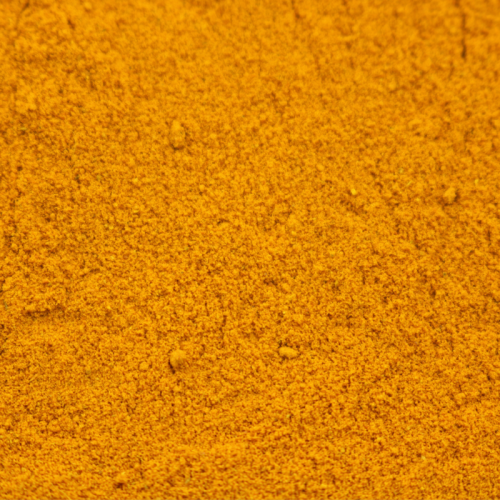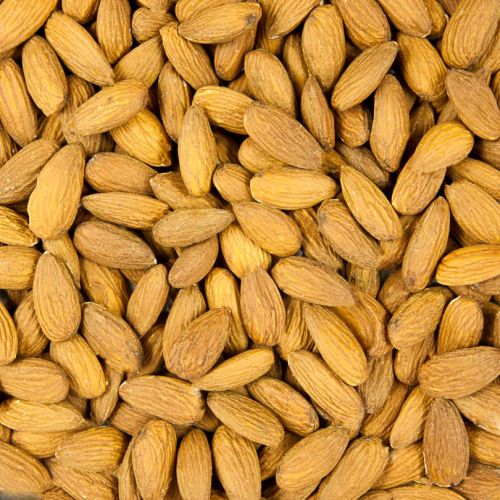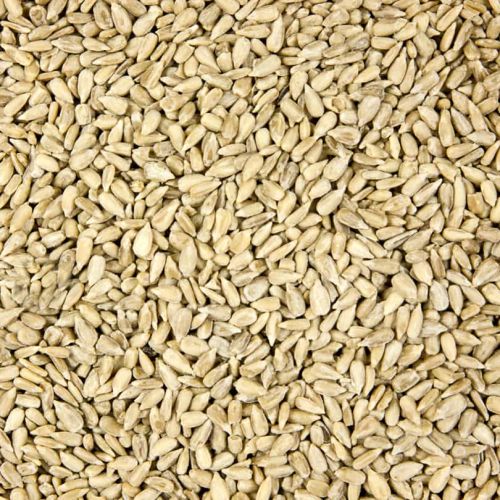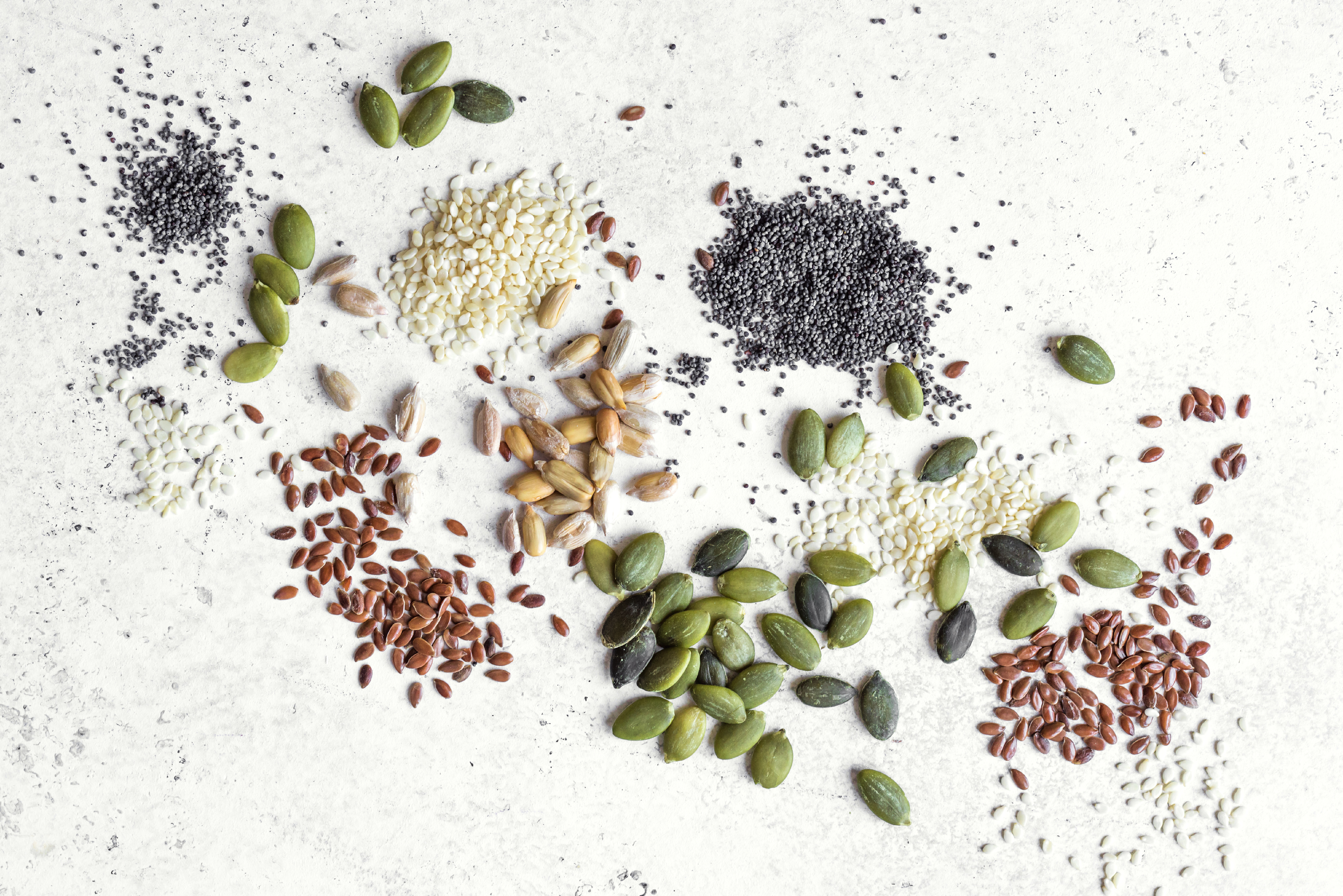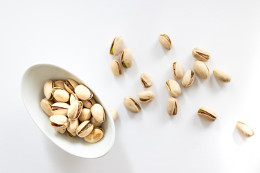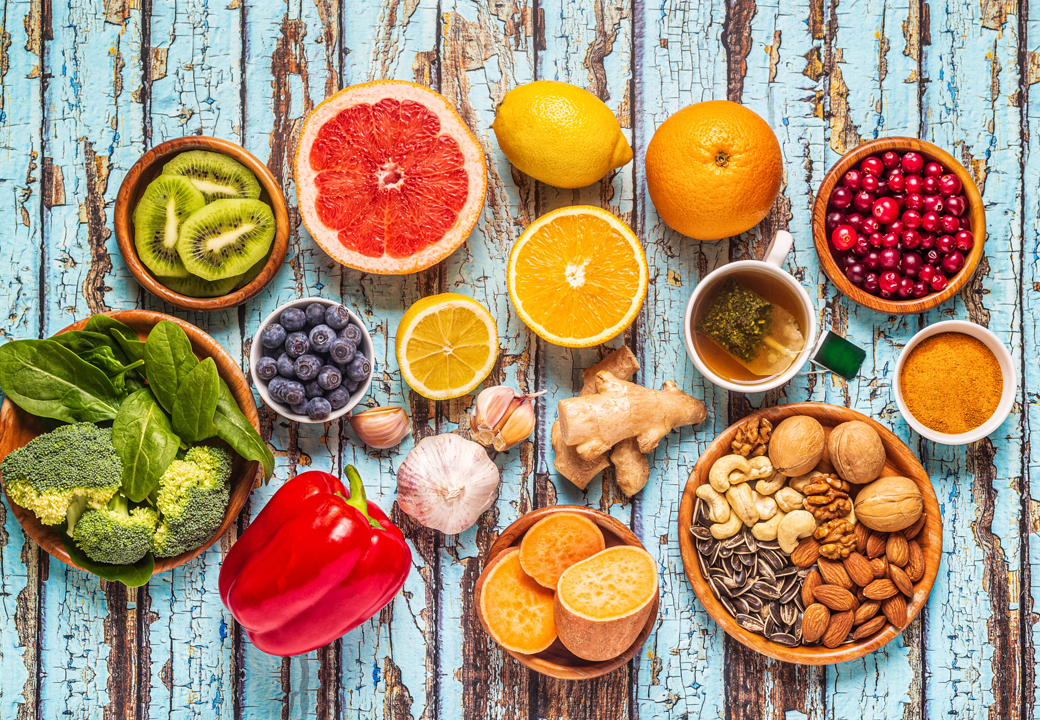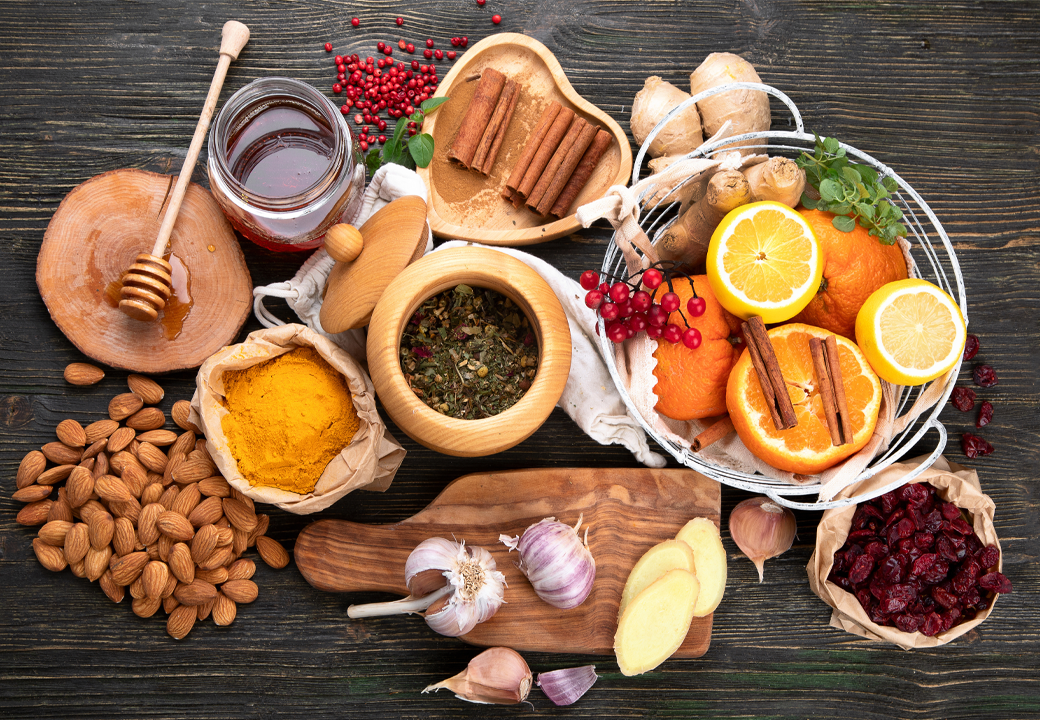

Photo Credit: "© [Slehan] / Adobe Stock
Four plants to help you beat the winter bugs
Turmeric
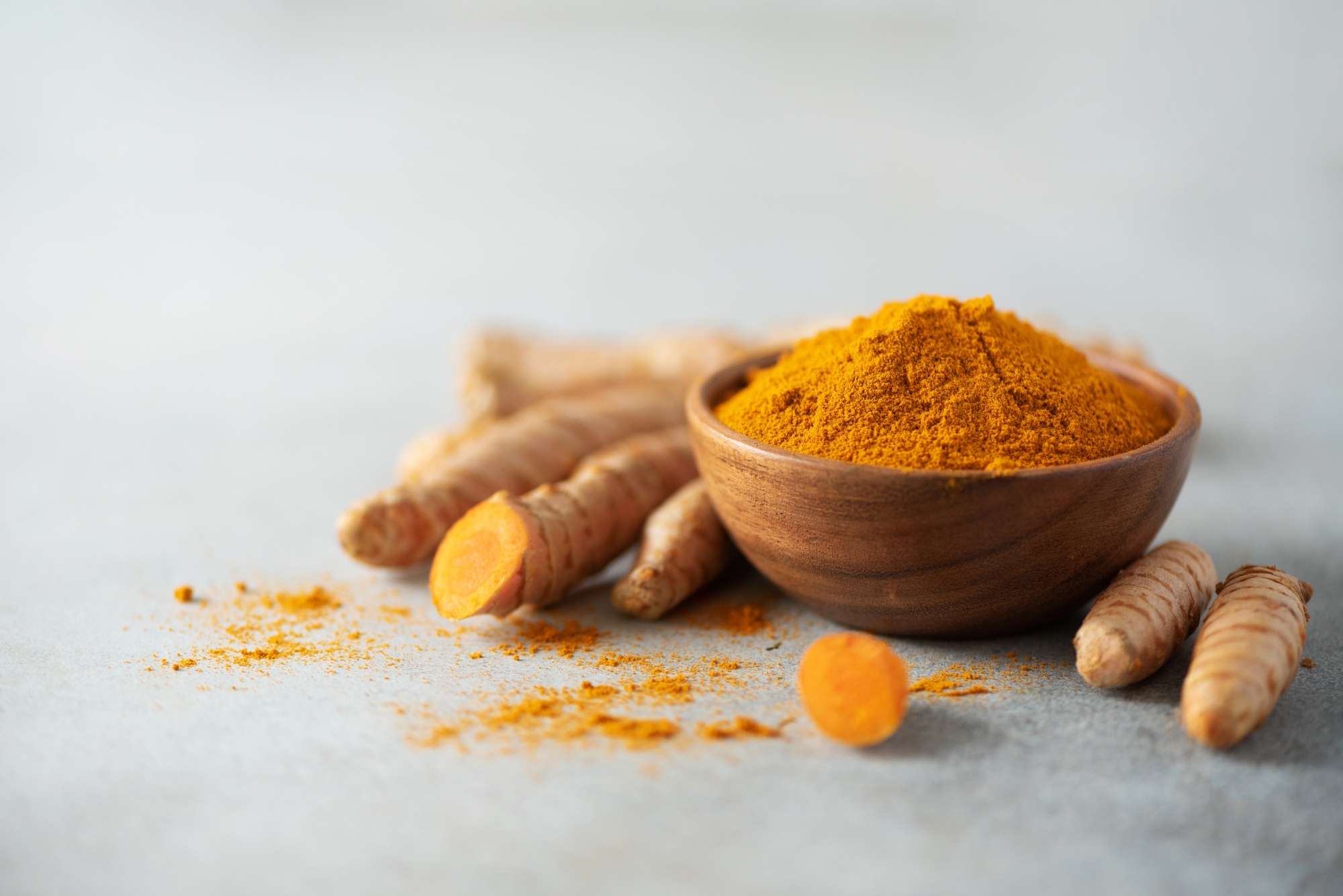

Photo Credit: "© [jchizhe] / Adobe Stock
Here comes the immunity heavy hitter with its active compound, curcumin. Turmeric may assist in regulating immune responses, enhancing the activity of immune cells. The power of curcumin also extends to reducing chronic inflammation, which is often linked to the function of the immune system. Couple this with turmeric’s ability to combat oxidative stress, and we have the chance to protect cells from damage and support the body’s natural defences. Like we said, it's a heavy hitter.
What's inside: Ground Turmeric (per 100g)
NUTRIENT AMOUNT % DAILY VALUE (DV)
Iron 55 mg 306%
Manganese 19.8 mg 861%
Vitamin E 4.4 mg 30%
Potassium 2,080 mg 44%
Magnesium 208 mg 50%
Green Tea
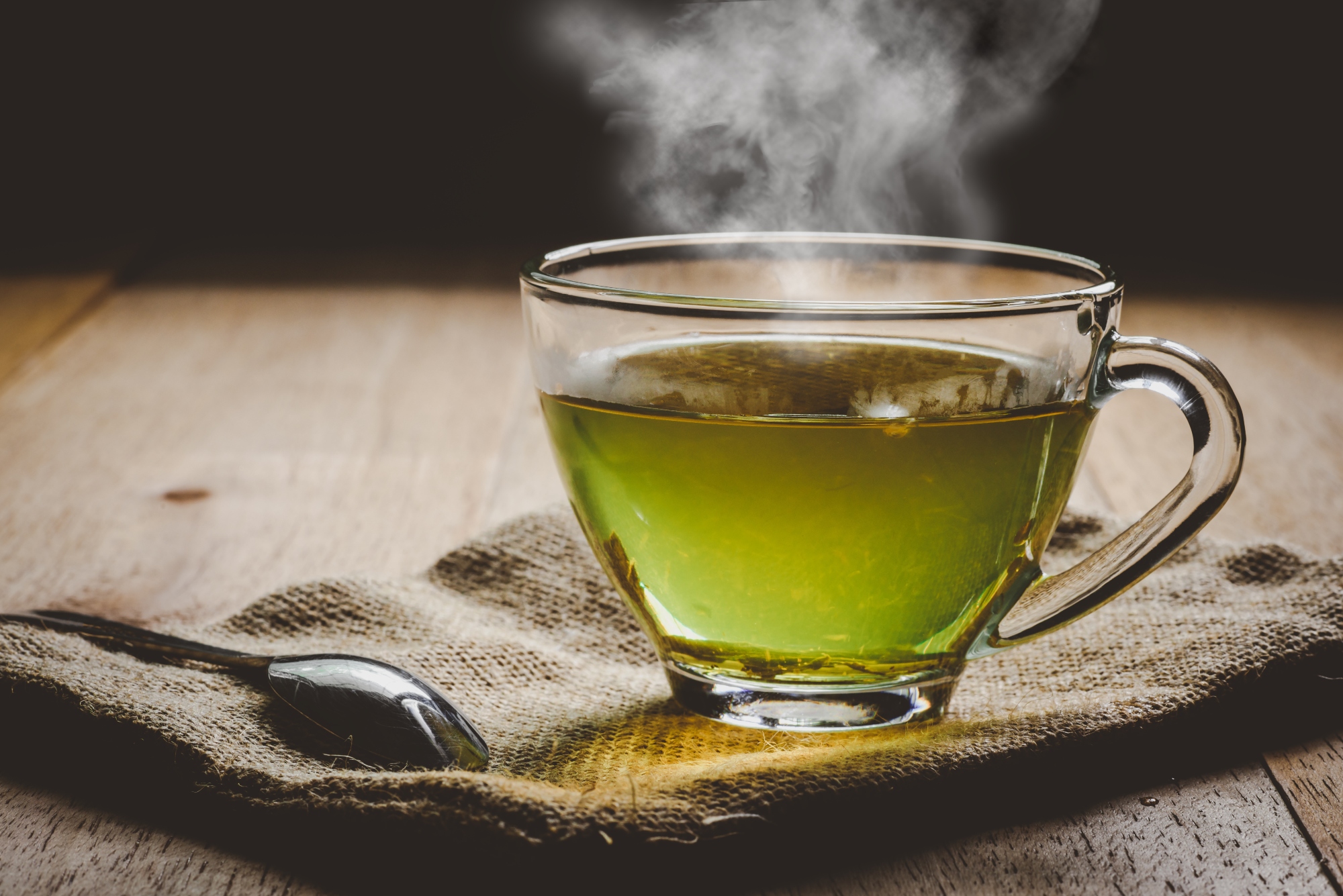

Photo Credit: "© [jchizhe] / Adobe Stock
Low-stress levels can help maintain a healthy immune system. And green tea is full of the amino acid L-theanine, which promotes relaxation, without, crucially, having a sedating effect. Green tea also boasts a natural antimicrobial effect as it contain polyphenols that can help the body fight bacteria and viruses. In addition, there is evidence suggesting that the compound makeup of green tea can help promote and enhance immune-cell function and prevent autoimmune reactions.
What's Inside: Green Tea, Brewed (per 100g)
NUTRIENT AMOUNT % DAILY VALUE (DV)
Calcium 5 mg 1%
Fluoride* ~0.3 mg varies
Potassium 90 mg 5%
Magnesium 2 mg 1%
Sodium 3 mg 0%
* Fluoride levels vary depending on water source and brewing method.
Almonds
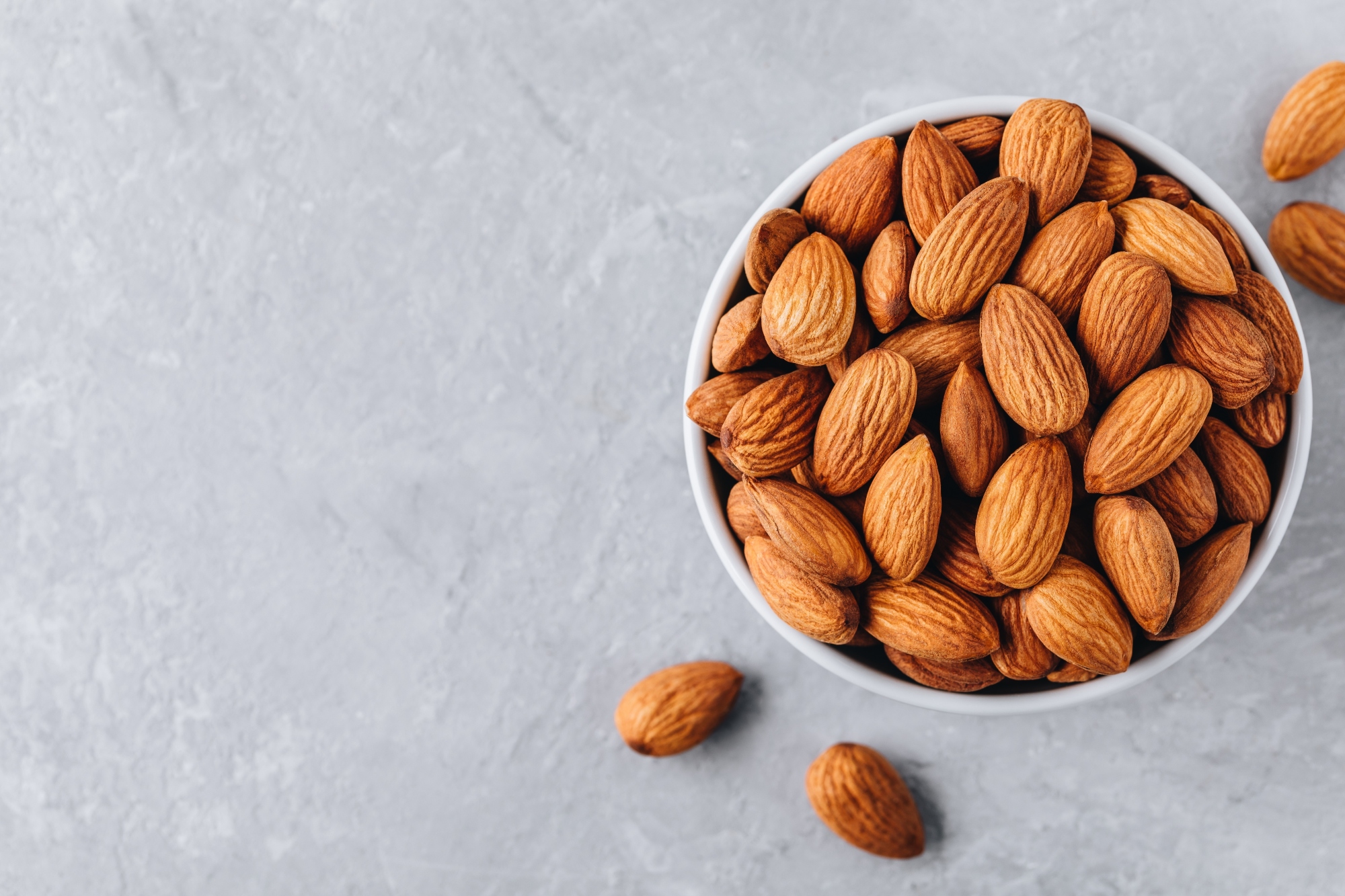

Photo Credit: "© [nblxer] / Adobe Stock
Almonds are loaded with powerful antioxidant vitamin E. While it doesn’t command top billing in the immunity stakes like vitamin C, vitamin E has a key role to play in preventing and fighting off colds. As it is fat soluble, vitamin E needs fat to be present to ensure it is easily absorbed. Almonds are full of healthy fats, which makes these nuts an important daily addition for anyone looking to boost their immunity. Almonds also deliver zinc, magnesium and B vitamins, all of which play important roles in immune-cell development, antibody production and reducing fatigue that can weaken immune defences.
What's Inside: Almonds (per 100g)
NUTRIENT AMOUNT % DAILY VALUE (DV)
Vitamin E 25.6 mg 171%
Magnesium 268 mg 67%
Calcium 264 mg 26%
Iron 3.7 mg 21%
Phosphorus 484 mg 69%
Sunflower Seeds
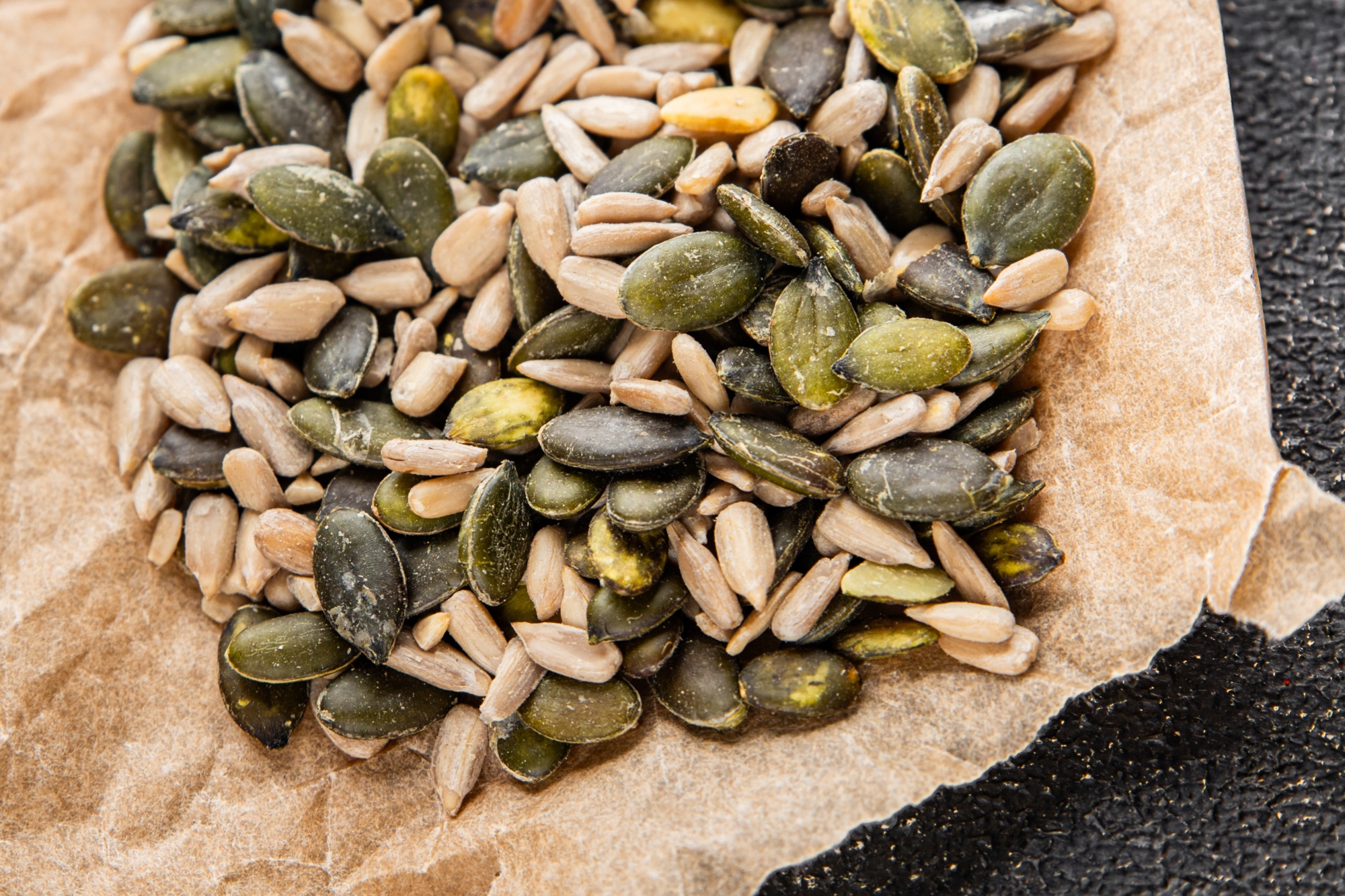

Photo Credit: "© [Alesia Berlezova] / Adobe Stock
One of the richest natural sources of vitamin E, sunflower seeds are important in regulating and maintaining immune-system function. These seeds are also full of other nutrients, including phosphorous, magnesium and vitamin B6. Packed with zinc and B vitamins, sunflower seeds contribute to the production and function of white-blood cells, which are crucial for detecting and fighting pathogens. Sometimes, it’s the little things that pack the biggest punch.
What's Inside: Sunflower Seeds (dry roasted, per 100g)
NUTRIENT AMOUNT % DAILY VALUE (DV)
Vitamin E 35.2 mg 234%
Selenium 53 mcg 96%
Magnesium 325 mg 77%
Phosphorus 660 mg 56%
Folate (B9) 227 mcg –
Sources: USDA FoodData Central and NIH Office of Dietary Supplements
